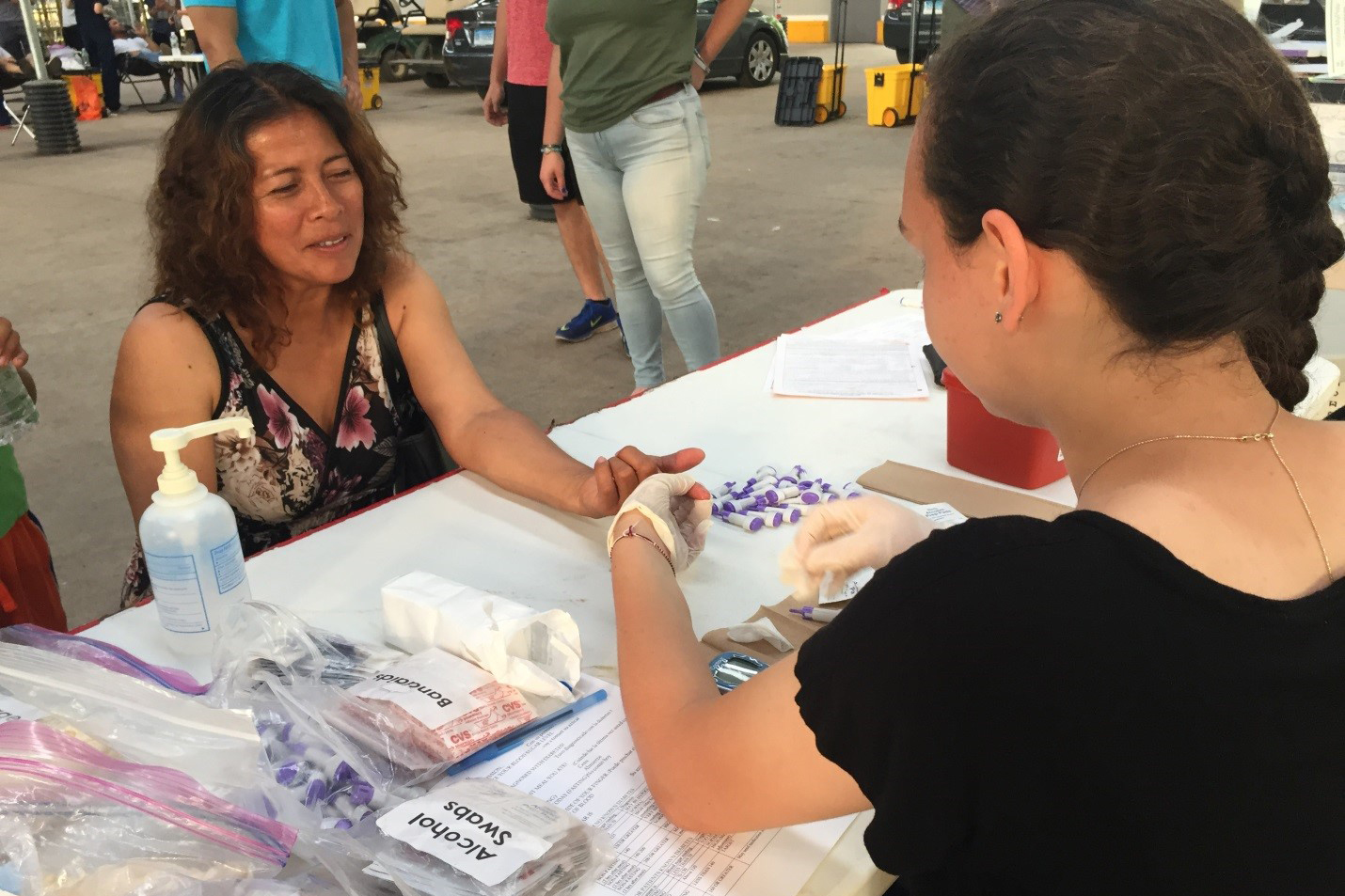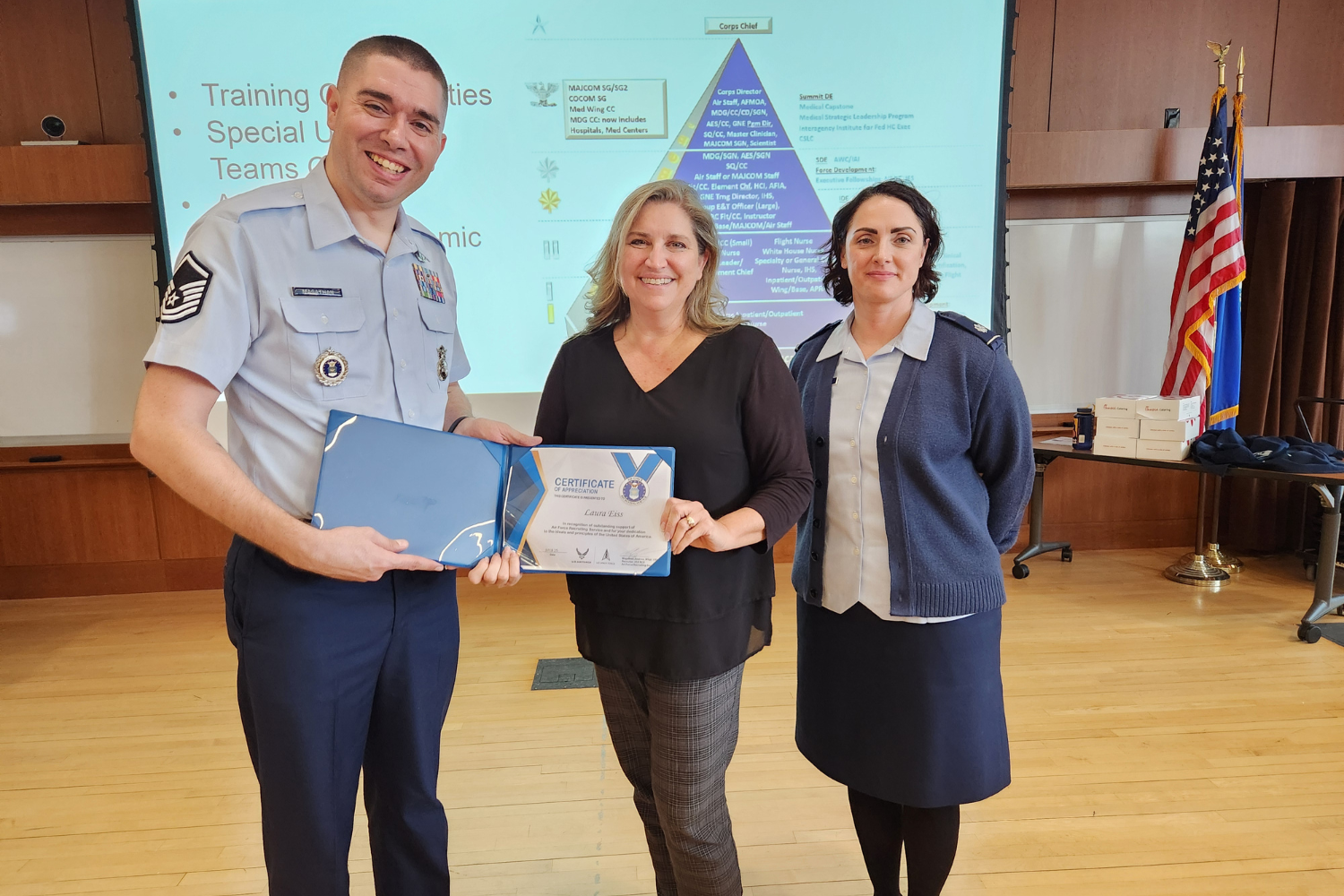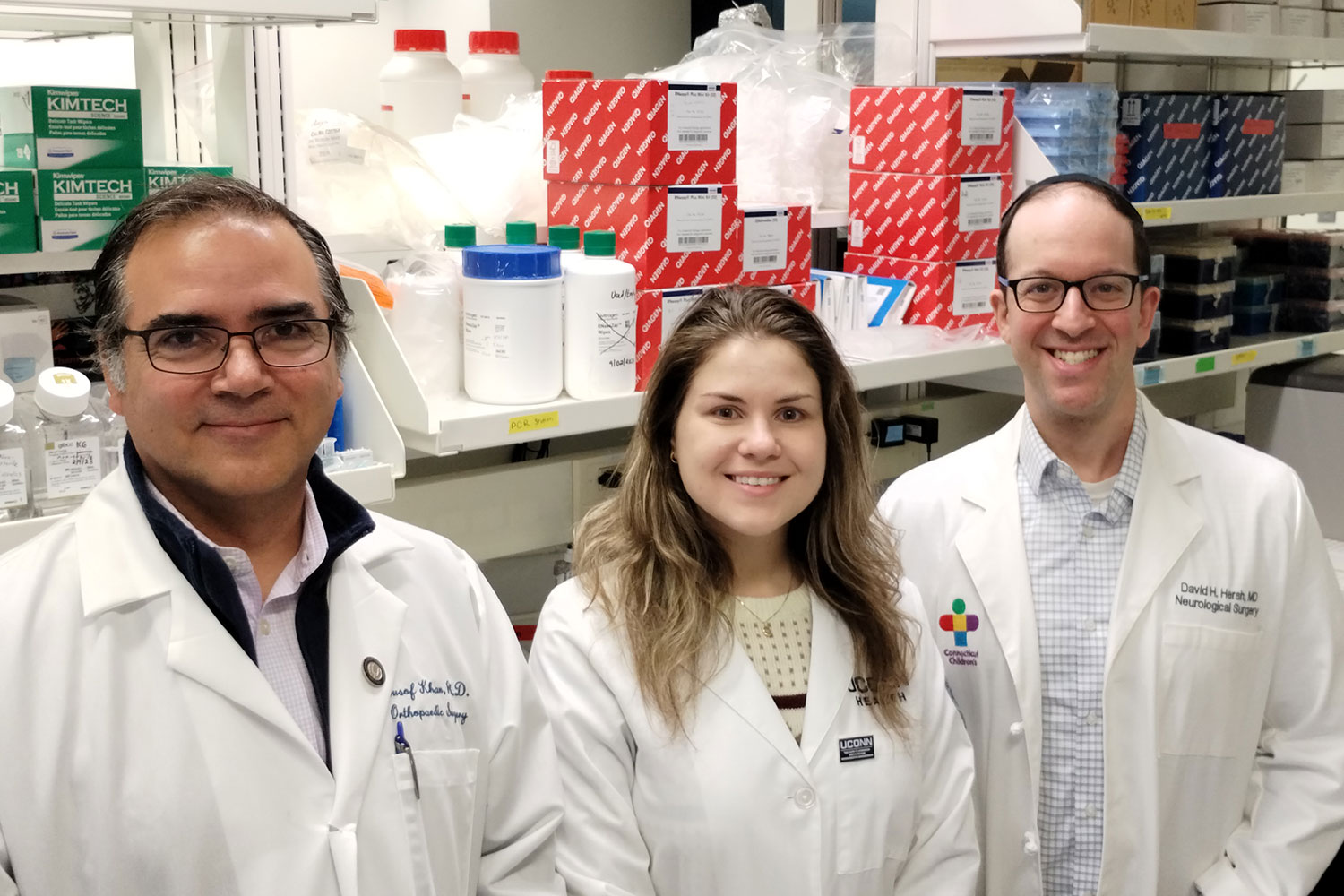Students and faculty from the Doctor of Physical Therapy (DPT) Program in the College of Agriculture, Health and Natural Resources (CAHNR) have been volunteering since 2008 to help bring health care to Connecticut’s migrant and seasonal farm workers, a medically underserved population.
Every year thousands of migrant agricultural laborers journey to Connecticut to work at the state’s farms, orchards, nurseries and greenhouses. These temporary farm workers help plant, grow, harvest and produce a wide range of the state’s labor-intensive agricultural commodities, including tobacco, ornamental flowers and plants, fruits and vegetables, and poultry and dairy goods, supporting the state’s $4 billion agricultural industry. Most seasonal workers arrive from Mexico, Central America, the Caribbean islands and other states with large agricultural operations, such as California, Florida and Texas. For the past twenty years, farmers in the Northeast have reported hiring more migrant employees as the ability to find local, native workers has declined. It is estimated that over 7,000 seasonal farm workers are employed in the state. They are predominately male, widely varying in age from teenagers to the elderly; some workers are in their sixties and seventies. Without this workforce, Connecticut agricultural producers face labor shortages that would put businesses at risk.
Migrant workers face a number of challenges. Most do not have health insurance or are underinsured and are largely ineligible for Medicaid or Social Security benefits for medical care even though they pay into these programs. They typically receive housing in barracks provided by farms or share small apartments with several of their co-workers. Transportation is often by carpool or buses that bring workers to and from the farm. These obstacles mean that migrant farm workers are unable to easily access or afford health care, medical assistance and medications.
To provide care to these workers, UConn and the Connecticut Area Health Education Center (AHEC) established the UConn Migrant Farm Worker Clinics (MFWC) in 1997. MFWC are a mobile service that partner with local farms to provide free health consultations and medical aid to this underserved population. The clinics are staffed entirely by student volunteers and medically licensed professionals who mostly hail from the UConn but also from a number of college programs and private practices, including members of the DPT Program.



